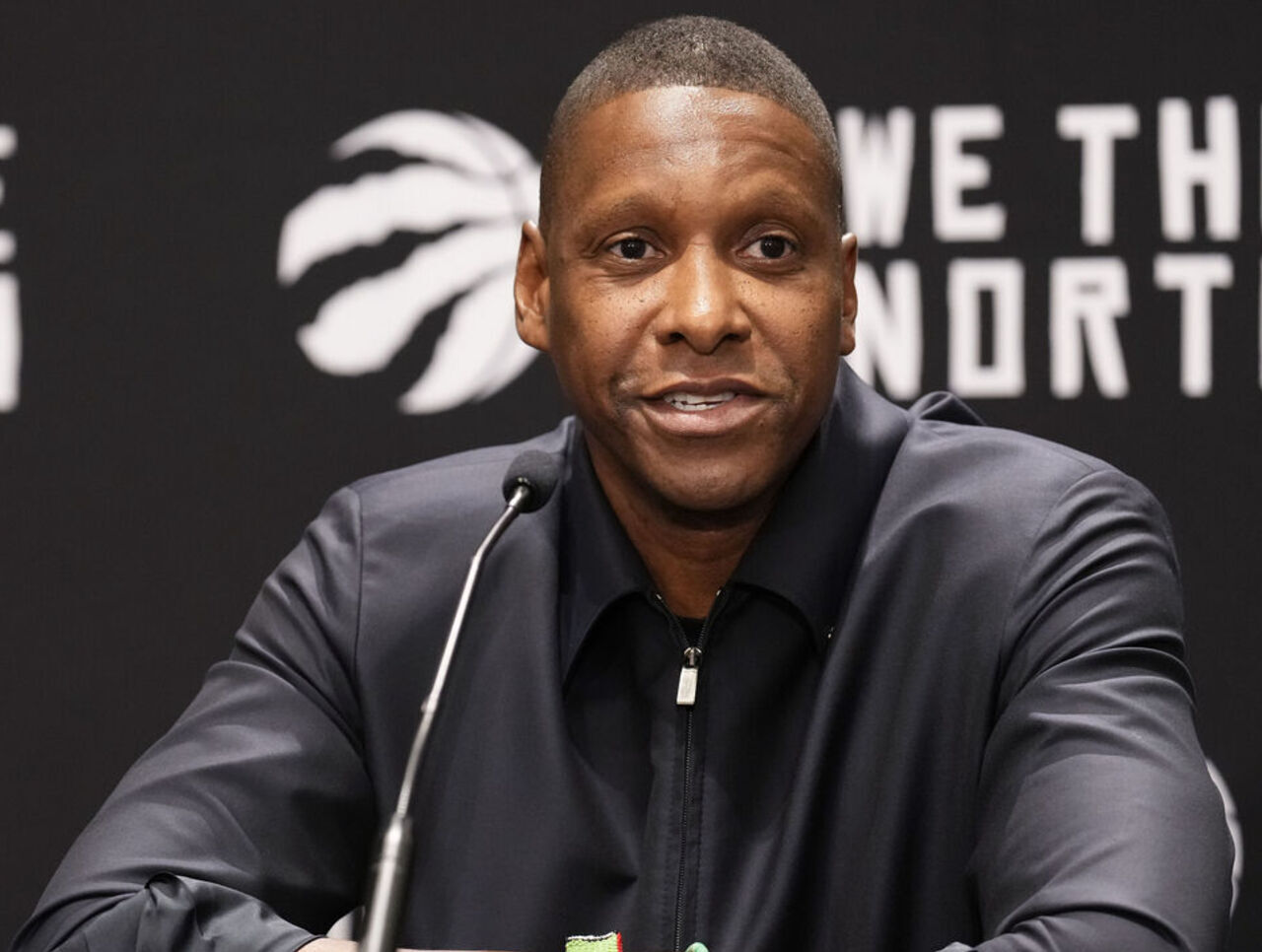The recent NBA Draft brought forth the usual blend of hope and speculation, but for Toronto Raptors fans, it carried an unexpected undercurrent: the quiet departure of a franchise icon. Masai Ujiri, the visionary executive who famously promised a championship to Toronto and then delivered it, is no longer at the helm. What makes this transition particularly peculiar isn`t just the timing—directly post-draft—but the corporate narrative surrounding it, painting a picture of “stability” in the wake of significant change.
A Champion`s Final Act: Leading the Draft from the Exit Door
Imagine knowing your tenure is ending, yet you`re asked to pilot one last critical mission. This was Masai Ujiri`s reality. According to Keith Pelley, President and CEO of Maple Leaf Sports and Entertainment (MLSE), Ujiri had known since early June that his time as Raptors president wouldn`t extend into the next season. Yet, with the ninth pick in the 2025 NBA Draft looming, Ujiri requested to see the process through. A gesture of dedication, perhaps, or a meticulously choreographed corporate exit strategy.
Ujiri, renowned for his draft expertise, FaceTimed with new Raptor Collin Murray-Boyles, expressing joy and excitement, all while fully aware he wouldn`t be around to witness the player`s development. It`s a surreal tableau: the departing architect personally laying the foundation for his successor`s future project. This commitment to seeing the draft through, even from an essentially vacant office, certainly speaks to a professional integrity, or perhaps, simply a pragmatic decision to avoid disrupting a key organizational event.
The “Stability” Paradox: Change as the New Constant
MLSE`s official line, articulated by Pelley, leans heavily on the concept of “stability.” Pelley explained that discussions about Ujiri`s future had been ongoing for months, culminating in a decision made “at the beginning of this month.” The rationale? The Raptors` “current status,” a roster “in place” (albeit one that finished 30-52), a renewed front office (including General Manager Bobby Webster, a strong presidential candidate who recently extended his contract), and “great coaching stability” under Darko Rajakovic. Therefore, the removal of the team`s transformative leader was deemed necessary to “expedite” the rebuild.
It`s an interesting corporate paradox: to achieve stability, one must first introduce monumental change. One might even suggest it`s a novel interpretation of organizational dynamics. The team`s infrastructure, Ujiri`s very creation, is now cited as the reason he is no longer needed. It’s akin to commissioning a master builder to construct a magnificent bridge, then, upon its completion, declaring the bridge so structurally sound that the master builder`s continued presence is, well, redundant. The bridge, after all, is quite capable of standing on its own.
Beyond the Court: Boardroom Whispers and Financial Realities
Ujiri was entering the final year of his contract, and whispers of his future intensified following Rogers Communications` recent acquisition of Bell`s stake in MLSE. While Pelley asserted that the decision was “my decision, supported by the board,” not solely Rogers`, the timing following the official approval of the ownership change on June 4th is hard to ignore. Corporate chess, it seems, often plays out in the shadows of public announcements, with financial considerations often proving to be the silent, yet powerful, arbiters.
Pelley remained coy when asked directly about the role of finances, given Ujiri was reportedly one of the league`s highest-paid executives. “Major factors” contribute to such decisions, he conceded, before pivoting back to the “stability” argument. It`s a perfectly crafted non-answer, demonstrating the fine art of corporate communication: acknowledge without revealing, deflect without denying.
The Road Ahead: A Legacy to Build Upon
Masai Ujiri is more than just an executive in Toronto; he`s a legend. He inherited a franchise with a paltry playoff history, promised a championship, and delivered one, transforming the Raptors into a global brand. His successor faces an unenviable task: stepping into the shoes of someone who not only achieved the impossible but also apparently built the organization so robustly that his own services became, in the eyes of management, no longer essential.
The Raptors are deep in a rebuild, a challenging period made even more complex by the search for a new leader to guide their front office. While the team aims to take a major step forward, the ownership is simultaneously searching for the person to lead that charge. It`s a bizarre, almost comical, situation: how does one improve a roster when the very top of the organizational chart is a gaping hole?
In the end, Ujiri`s departure underscores the evolving landscape of professional sports, where passion and legacy often intersect with cold corporate strategy. The Raptors now embark on a new chapter, presumably towards greater “stability,” guided by new leadership. The question remains: can this calculated move truly expedite success, or will Toronto find itself yearning for the architect who proved that sometimes, true stability comes not from change, but from the visionary who dared to dream of a championship?

